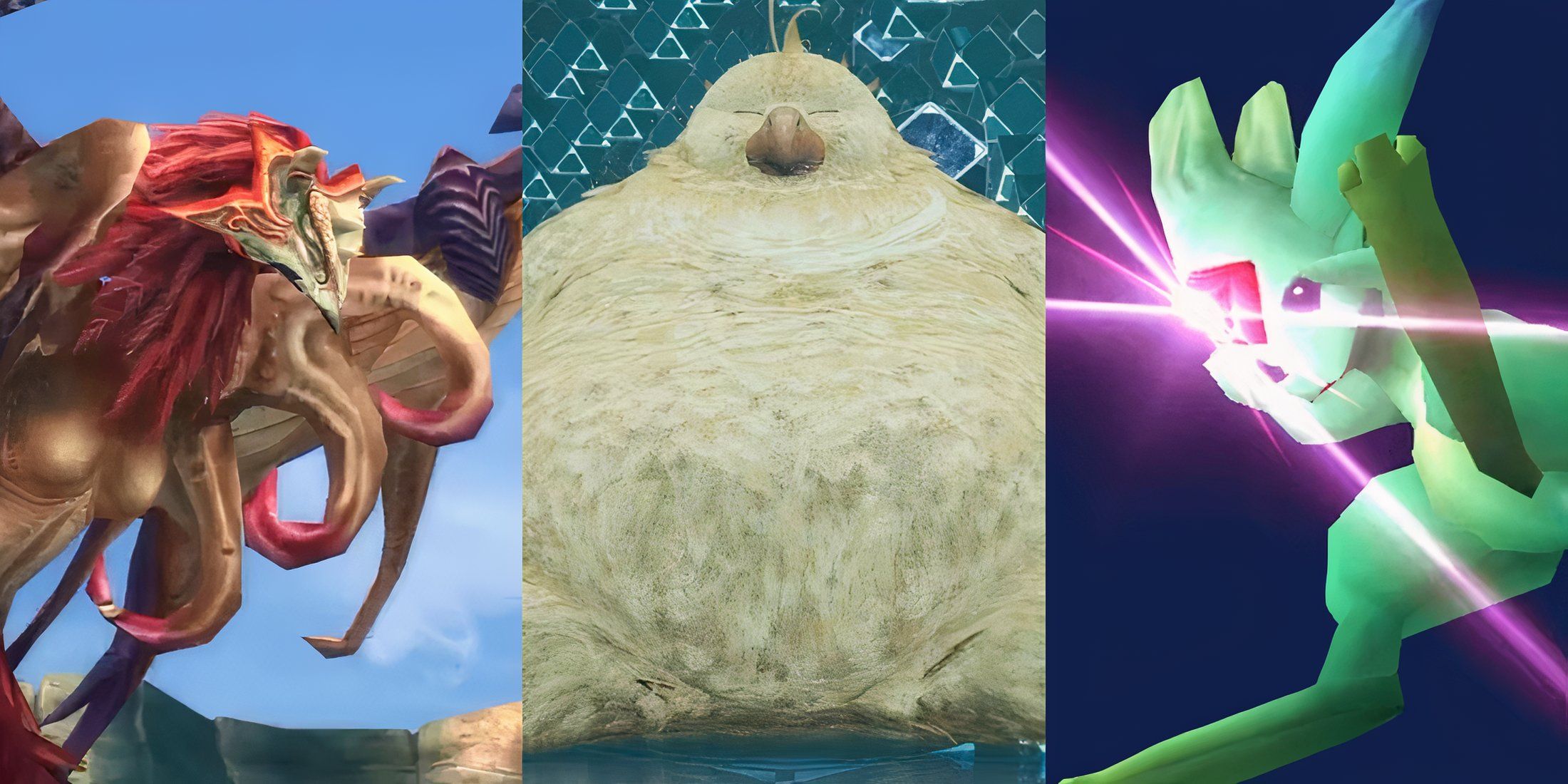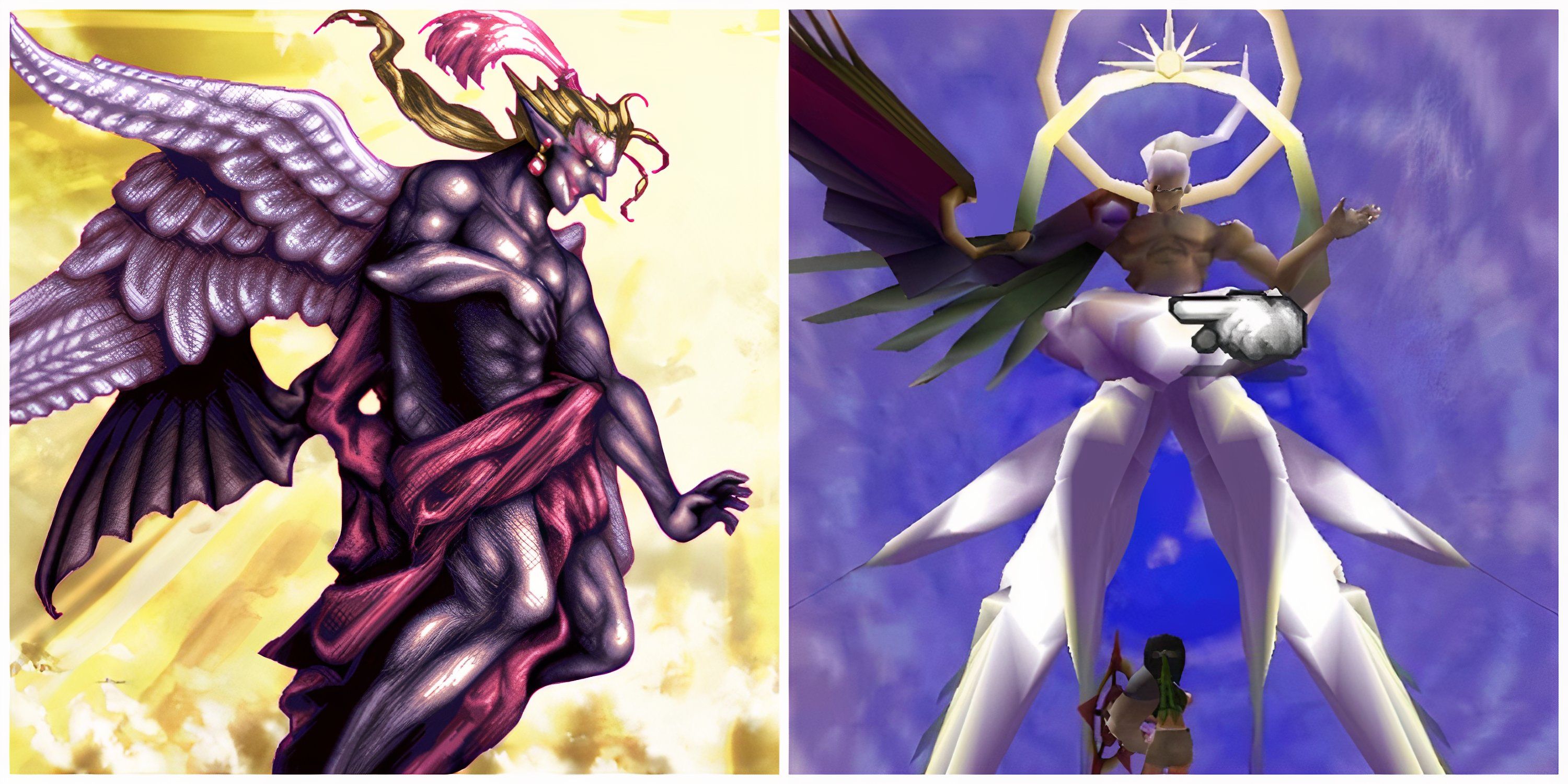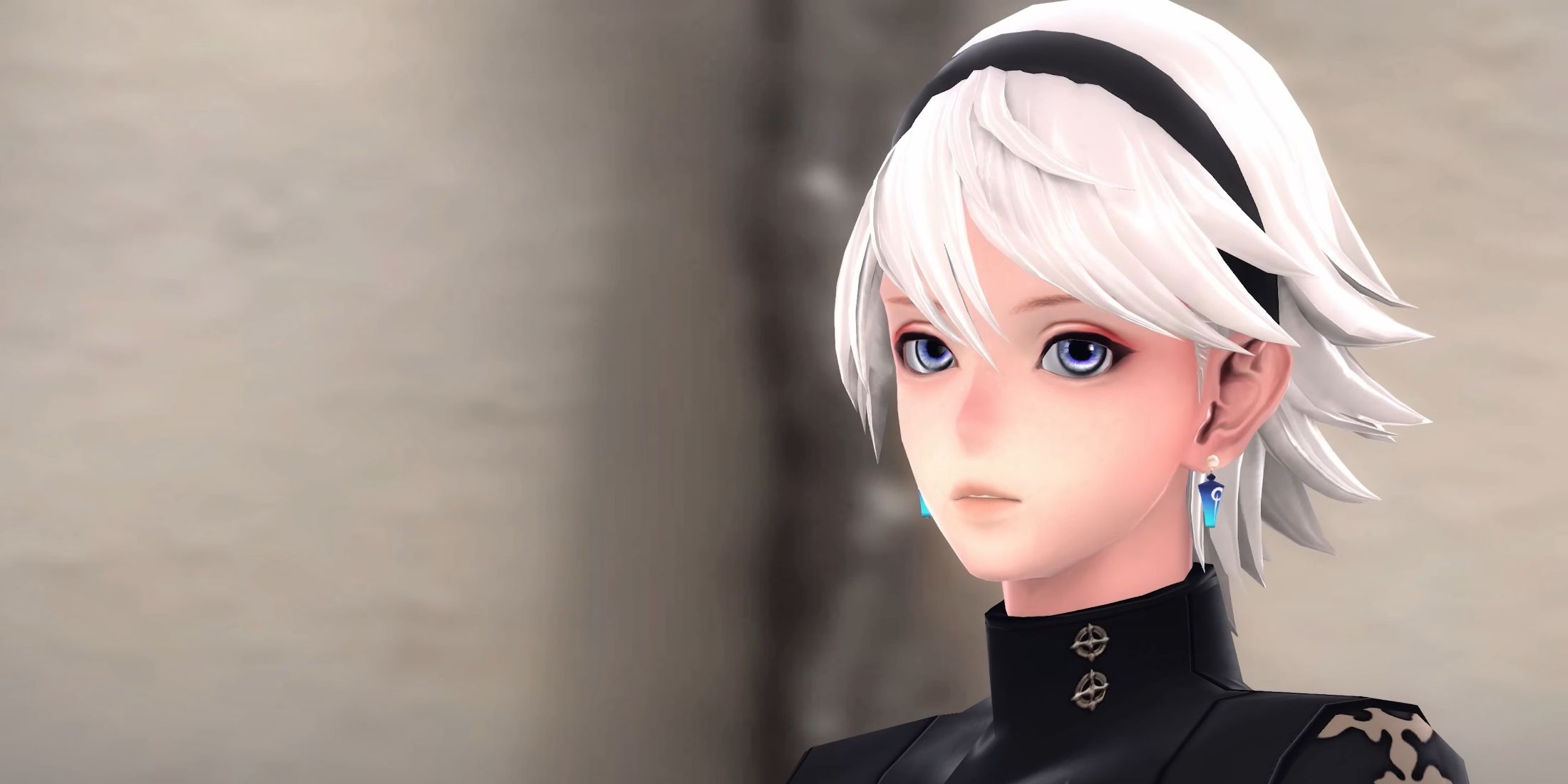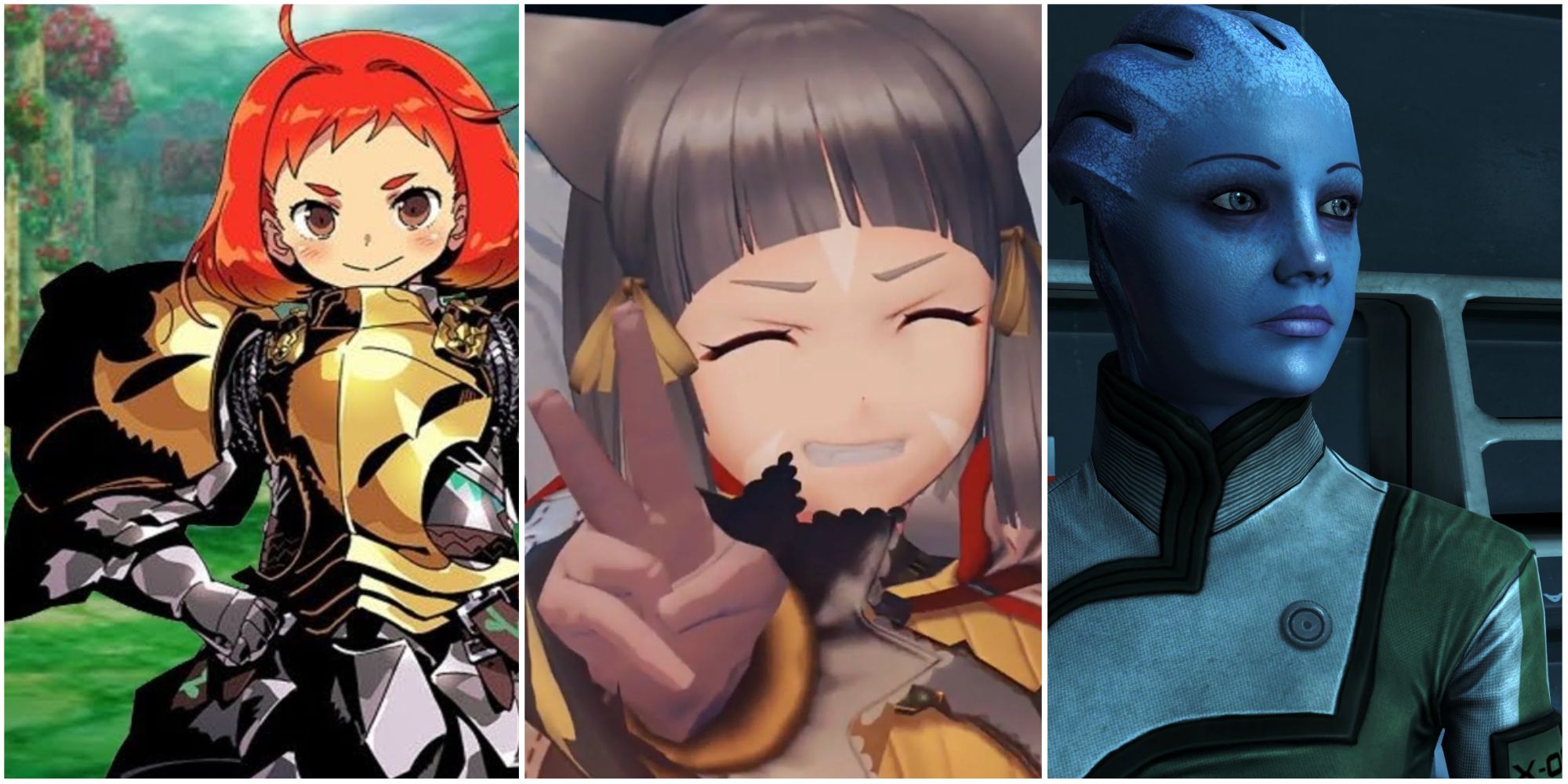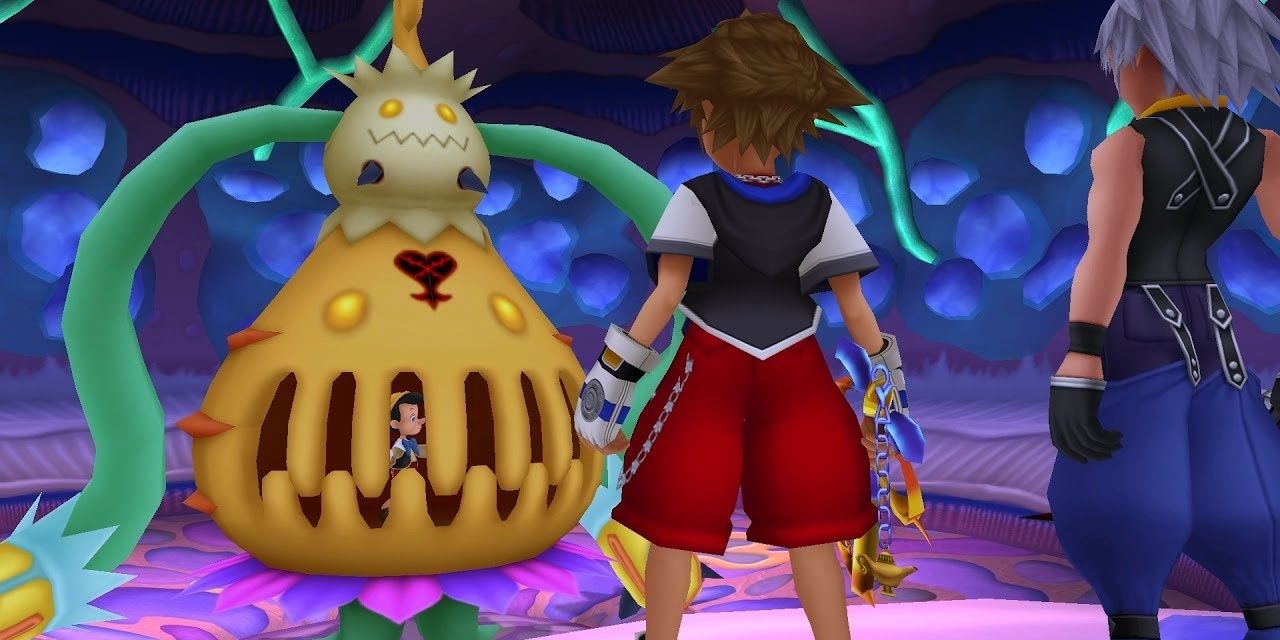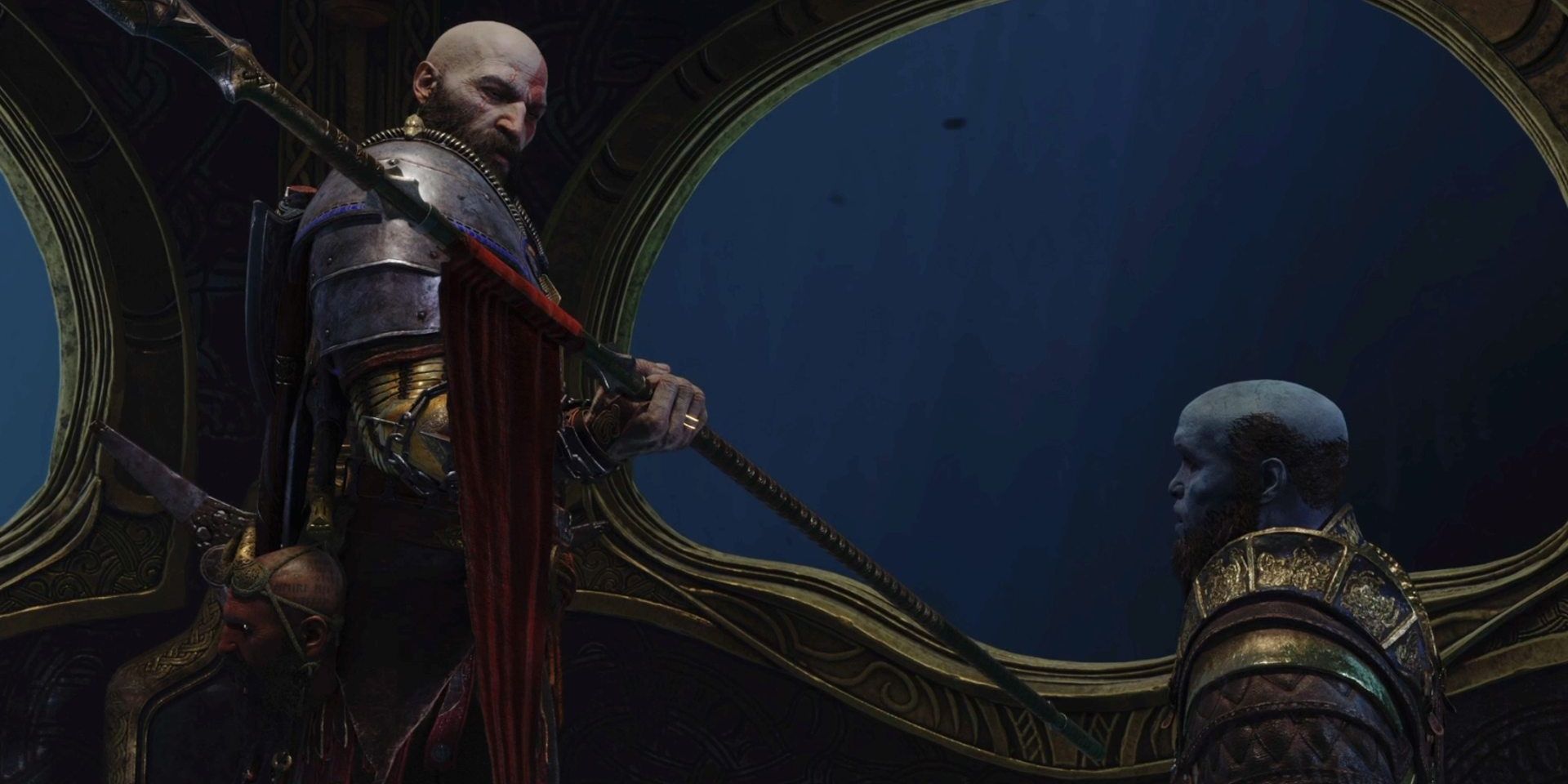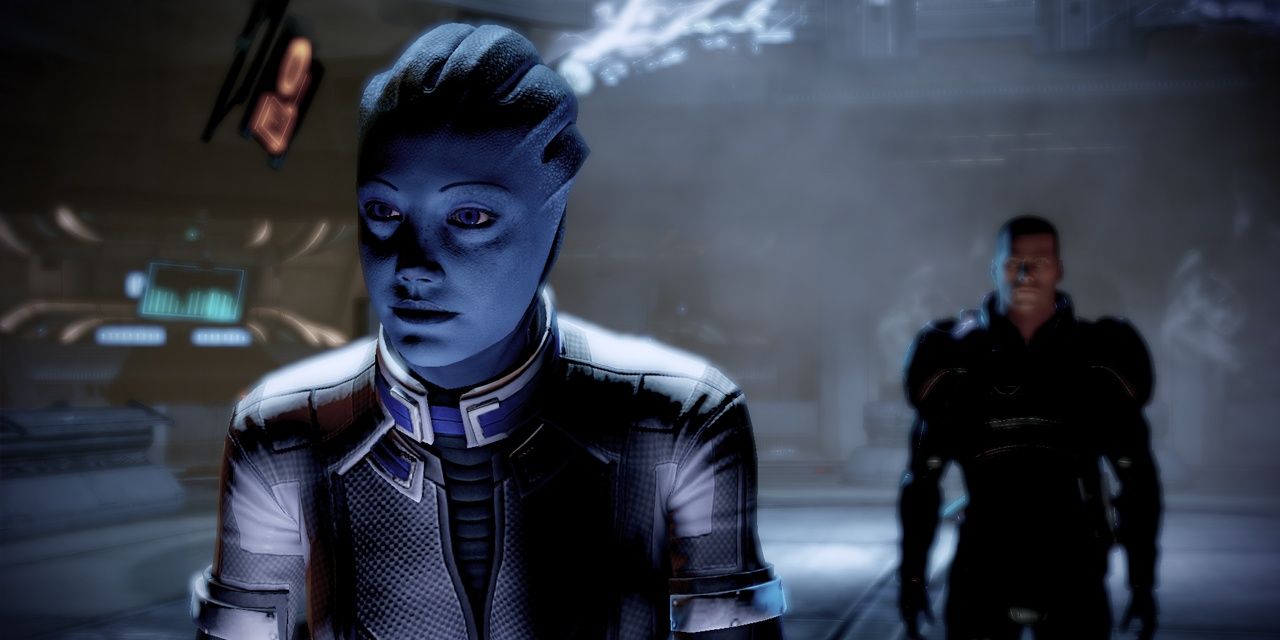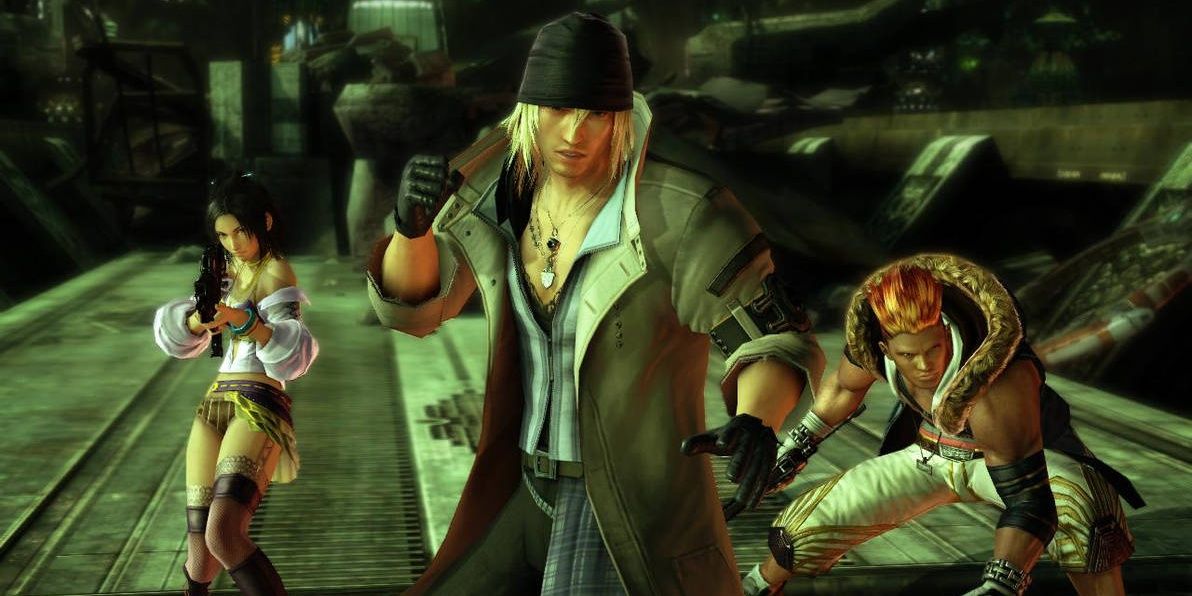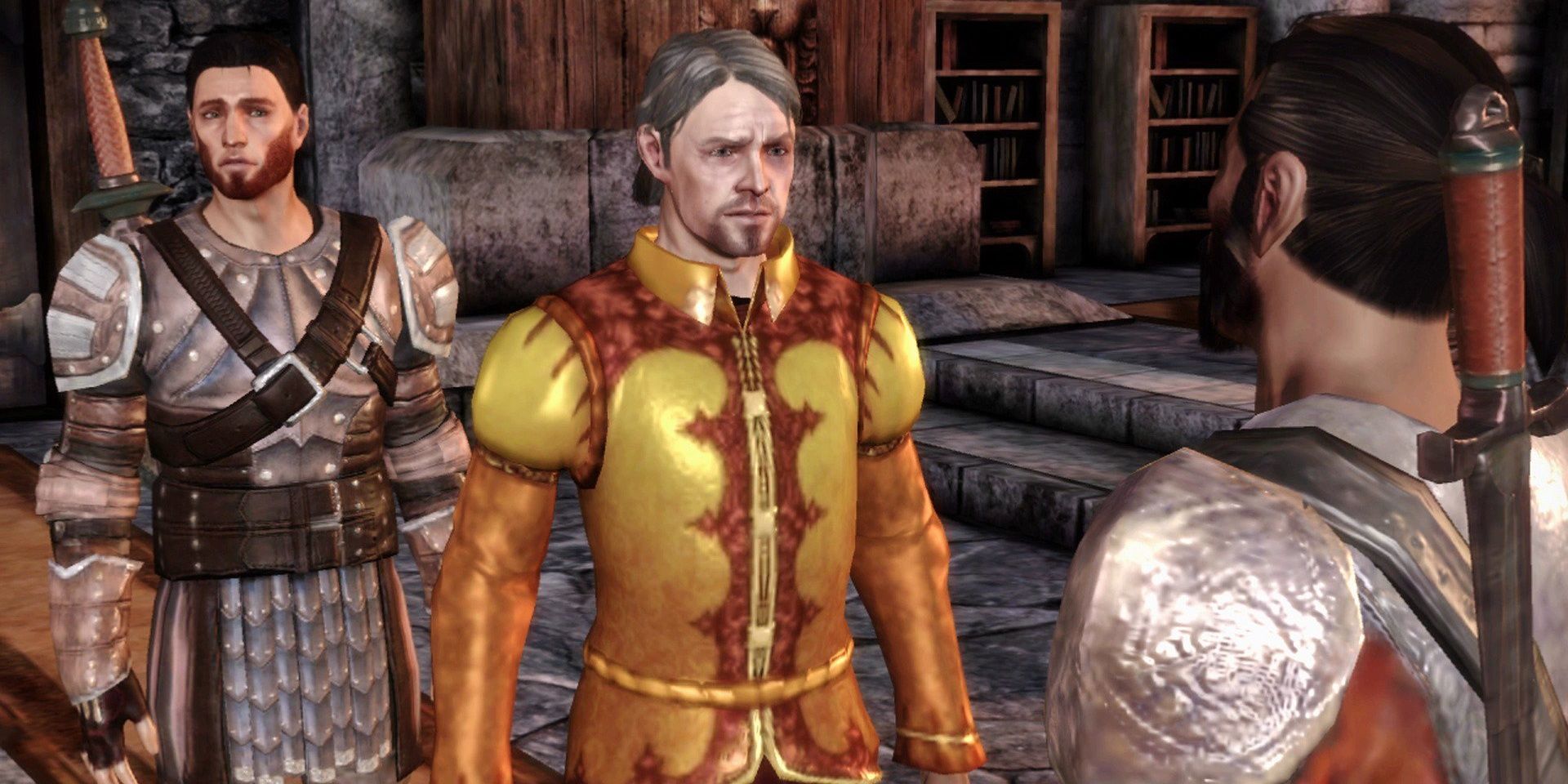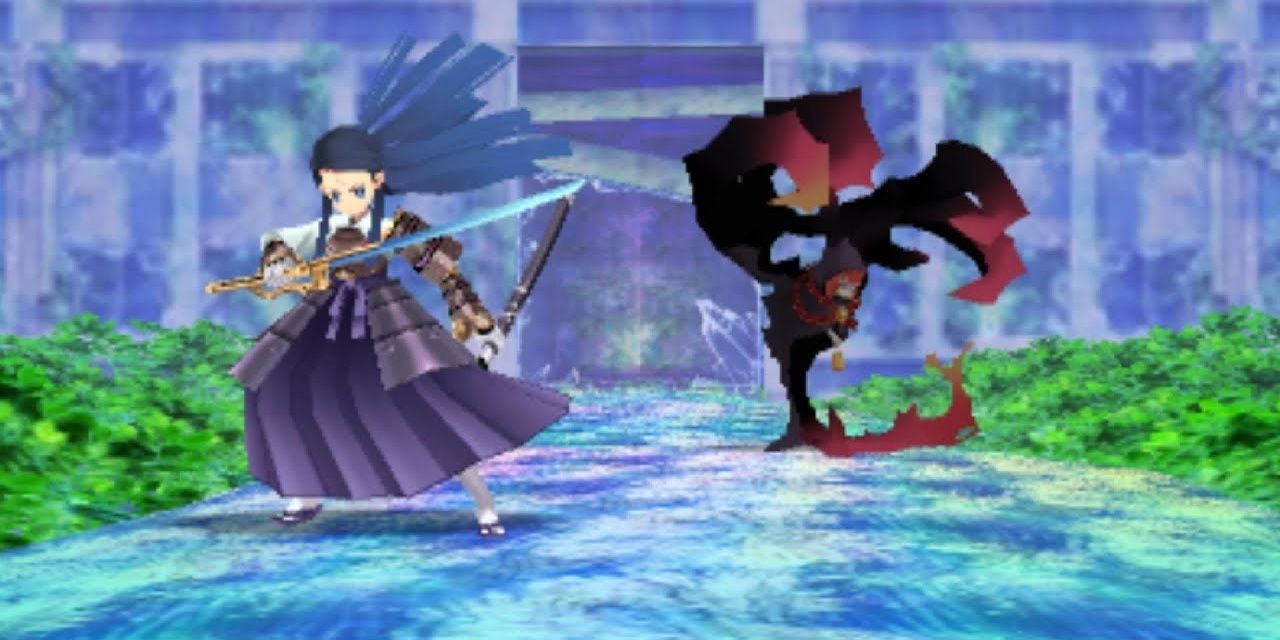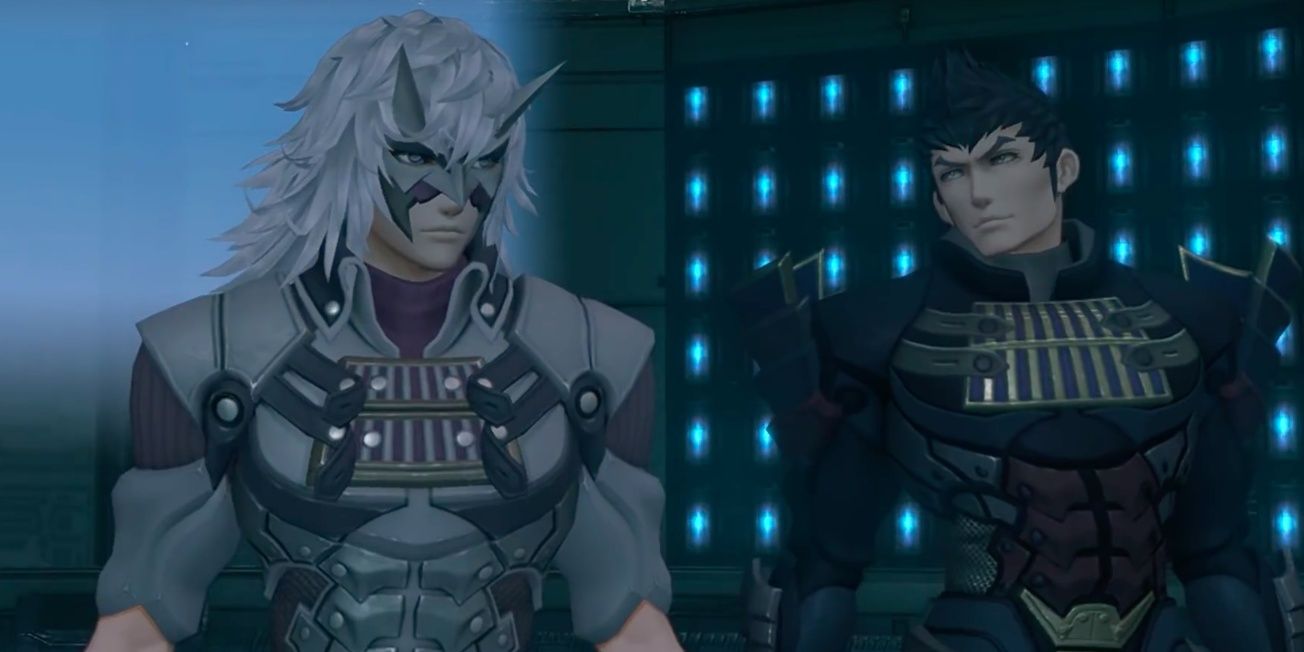It's always interesting to build a party in a role-playing game. Would-be heroes get to know the characters who will accompany them on a grand adventure. Not can these guys be helpful in combat, but they're often engaging as people. Sometimes, though, the process isn't so simple.
Certain games have fake party members. These characters who make players think they're joining the fellowship, but they then abandon the party. It's usually because they have ulterior motives. Alternatively, the plot may just need them elsewhere. Regardless, these teases hurt.
7 The Kingdom Hearts Series
Protagonist Sora spends much of the first Kingdom Hearts game searching for his childhood friends, Riku and Kairi. When the former tries to steal Pinocchio's heart, the puppet finds himself imprisoned by monsters. Sora and his wayward buddy then put their differences aside to save the wooden boy, with Riku fighting alongside the party during a boss battle. Sadly, he quickly goes back to his antagonistic ways. It isn't the last time the series teased fans like this.
These games have several instances where the heroes meet new allies only for those allies to be suddenly swept away. For a recurring example, look at Mickey Mouse in Kingdom Hearts 2, Birth by Sleep, and Kingdom Hearts 3. In fact, all tag-team battles in Kingdom Hearts 3 fall into this trap. Another Keyblade wielder joins Sora for a boss battle and then vanishes. It seems the only allies who stick around are Donald Duck and Goofy.
6 God Of War: Ragnarok
Beyond Kratos's son, players have a whole host of allies supporting them in this God of War title. Brok, Sindri, Angrboda, Thrud, and even Thor join the fight at points. They all help players traverse the world, and most take commands during battle. Not everyone is a mainstay, though.
The majority of them come and go. The only ones with dedicated skill trees are Atreus and Freya. However, their AI doesn't seem any more advanced. Plus, some of the other characters--like Brok and Sindri--have just as much stake in the fight. As such, it's unclear why Ragnarok has so many one-offs.
5 Mass Effect 2
Presumed dead, Shepard is separated from his crew in the Mass Effect sequel. His new party is mostly composed of strangers, but a few familiar faces join the fray. Namely, Garrus and Tali return as party members. Later, it looks to be the same for the resident asari.
Shepard eventually encounters Liara on Ilium. The scenario plays out like other recruitment missions as players aid her in personal business. In this case, it's taking down a criminal kingpin known as the Shadow Broker. Liara remains in the party during these segments, but the result is ultimately different. Upon defeating the Shadow Broker, Liara takes his position and uses his information network to aid Shepard behind the scenes. That means she doesn't rejoin the crew—at least until Mass Effect 3.
4 The Final Fantasy Series
The Final Fantasy series has multiple moments of misdirection. The early entries juggle dozens of characters, and only a few of them actually remain for the duration. Final Fantasy 2, 3, and 4 are guilty of this. This makes it somewhat tough to connect to those characters.
Maybe that's why later games dial back the fake party members, though not completely. Final Fantasy 6 has Biggs and Wedge at the beginning and General Leo at pivotal points. When the regular party members split up in Final Fantasy 9, Beatrix and Zidane's pirate crew aid them. Final Fantasy 13's opening has Snow backed up by fighters in his resistance group. How ironic that the brawler himself is relegated to a guest character in the sequel. Why these games need fake allies is a mystery. The party is often so full that many players don't even use them all.
3 Dragon Age: Origins
The Dragon Age games have always been party-based RPGs, but the first entry starts with a solo origin story for the player character. That means filling out the other slots so that the player actually learns the mechanics and doesn't meet an early death. The Human Noble, for instance, has Gilmore and Eleanor as a backup. In true dark fantasy fashion, though, these allies meet grisly ends.
Aside from the shock value, this paves the way for recruiting the mainline fellowship. Players tackle several smaller stories across the land, with each scenario gradually filling out the party. Along the way, they may get more temporary party members. The Tower of Ishtal comes to mind. Like the Origin characters, these guys either die or refuse to stay. Easy come, easy go.
2 The Etrian Odyssey Series
Like Final Fantasy, the Etrian Odyssey series has numerous instances of fake parties. The third game has players embark on seafaring quests. The quest-givers join the party for these aquatic adventures. There are also Lili in the fifth game and Charis in Nexus, who each become party members during a boss fight. Obviously, the developers didn't think these were enough.
The remakes add yet more guest members. Ren and Tlachtga now support the hero at the start of the first game. In addition, Wulfgar and Hrothgar enter the fray for select battles in the second entry. Fans are likely grateful for their help against tough foes like the Chimaera, even if it's only temporary. Apparently, these guys had better things to do than babysit, which is just as well. Having the remakes' wildcards might break the rest of the battles.
1 The Xenoblade Chronicles Series
The Xenoblade Chronicles games mainly use this convention for tutorial purposes. The first has Fiora; the second has Jin, Malos, and Nia; the third has Mwamba. As is standard, they either die or leave players to their own devices. After all, their job's done once they impart their knowledge.
That said, a tutorial isn't the only reason for fake parties in Xenoblade Chronicles. The third game has Ethel briefly guide the heroes to their destination after they free her from brainwashing. Unfortunately, duty calls as she leaves to report to her superiors. So much for gratitude.

